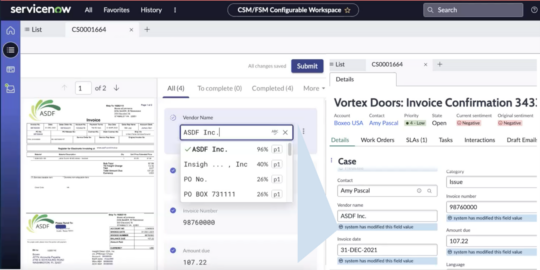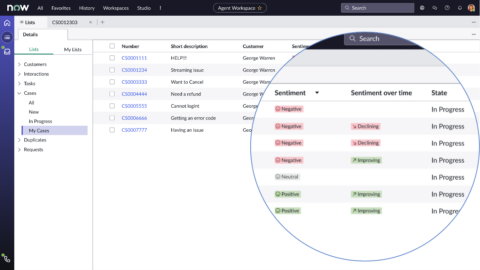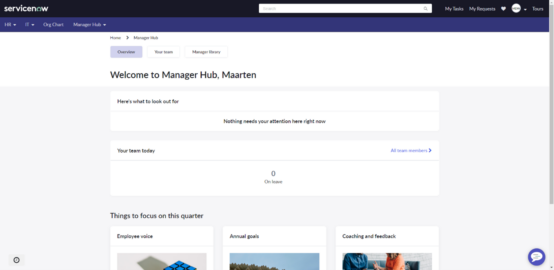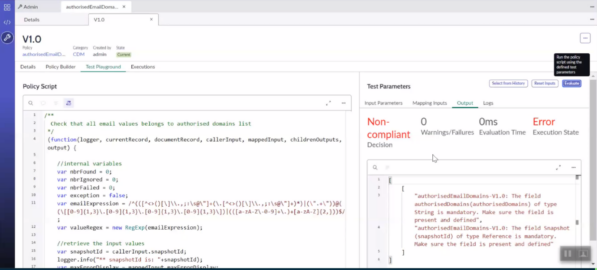Contact person
Carel Jansen
GRC Platform Consultant
+31 (0)30 76 02 670

ServiceNow’s Tokyo release, scheduled for Q4 2022, will introduce a lot of neat new features and additions to the platform. Don’t feel like reading through the release notes? Don’t worry, we’ve got you covered. In this article, we’ll walk you through the most notable Tokyo highlights.
Template Sharing and Management Center
Tokyo brings several improvements to the App Engine Studio. These help companies enable citizen developers to build their own applications much easier, and also give them increased insight into the development pipeline of apps.
Key benefits
The new Template Sharing feature enables administrators to define which user groups can make use of specific templates. This way, users only have access to templates that are relevant to them.
Previously, companies didn’t have insight into the applications being built and the status of their development. The App Engine Management Center solves this by presenting the necessary information on the development of apps in an intuitive dashboard. This helps reduce the potential risk of applications and identify bottlenecks, and it even allows for the configuration of multiple deployment processes’ pipelines.
Task Intelligence
AI takes another leap forward in CSM with the introduction of Task Intelligence. Because of the combination and enhancement of previous features with new abilities, Task Intelligence is a force to be reckoned with.

Key benefits
The improved Task Intelligence AI toolset greatly speeds up the information gathering, categorization, prioritization, routing, and resolution of cases. It helps agents prioritize cases by identifying the customer sentiment behind a case.

Document Intelligence reduces manually filled out fields by analyzing text as well as attachment content. Combined with automatic language detection, Document Intelligence significantly improves and speeds up automatic case routing.
Ad hoc approvals and Manager Hub
HRSD is receiving two updates that save time and add more flexibility to the module. Ad hoc approvals allow HR agents to add approvals to cases that are part of an HR service, while the new Manager Hub provides leaders with a tool to easily manage and monitor their teams.
Key benefits
Ad hoc approvals give HR agents much-needed flexibility in the solving of HR cases and allow them to handle exceptional cases.
The Manager Hub fills a gap in the HRSD module; previously, there were only features for HR employees, agents, and admins. Now, managers receive a multi-facetted tool that gives them a complete overview of their team’s journeys, events, and learnings. Furthermore, they have all the resources at hand that are needed to manage their employees, allowing them to focus on the work that’s most important.
Technology Reference Model (TRM)
APM’s new Technology Reference Model (TRM) enables enterprise architects to define and manage software production standards and managed unapproved organizational software.
Key benefits
The TRM enables users to define and track software standards for business applications. It helps you understand which applications have a technical debt and do not comply with standards, lowering software-related security risks.
Solution owners can now request software—through new standard record producers—to be part of the TRM, while enterprise architects can review and approve business application status and technical debt.
Overall, the great benefit of the TRM is that it provides an improved means of communication between solution owners and enterprise architects.
ITOM Governance
The new ITOM Governance application provides workflows that assess the cloud-readiness of your organization and enforce cloud-governance guidelines.
Key Benefits
ITOM Governance enables you to plan, organize, and track the migration of IT resources and workloads to the cloud. This is especially valuable for tag governance, as it’s now much easier to remediate missing and incorrect cloud resource tags.
On the level of governance, configuration policy violations are now visible and fixable, while custom workflows can be used to interact with your organization’s cloud resources.
DevOps and Policy and Compliance integration
Tokyo brings with it a new automatic integration of the DevOps module with the Policy and Compliance application. As DevOps activities often have to adhere to internal and external compliance requirements, this game-changing feature gives Policy and Compliance teams much-needed oversight.

Key benefits
All DevOps processes within ServiceNow are now automatically monitored. If a development activity or code is executed in a non-compliant way—as defined in internal or external policies—the system automatically creates an issue and links it to the appropriate policy.
This automatic monitoring will save both teams a lot of time and effort. Compliance teams have constant oversight on development activities and can immediately act when something goes into the wrong direction. Compliance teams, meanwhile, receive immediate notice that they’re working in a non-compliant way, allowing for a quick course-correction.


Sign up to our monthly Flow@Work Exclusive newsletter to get free access to our expertise and lots of tips and tricks to make work flow on the Now® Platform.